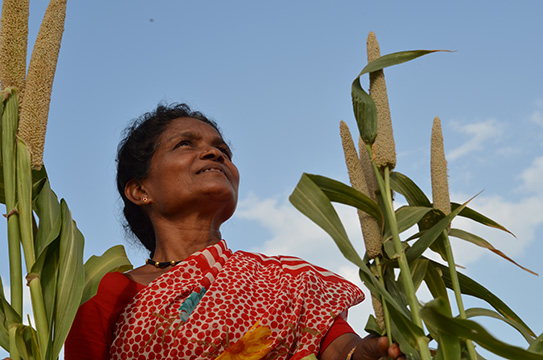Over the last century, crop diversity loss has accelerated globally, and a narrowing range of food species has become dominant. There is increasing consensus on the need to conserve local crop species and varieties in situ, and to re-diversify food systems. Many little-known or ‘forgotten’ crops are still cultivated and important in local food systems, or were until recently. These crops are poorly documented, rarely collected, and sometimes endangered.
In this special issue, we will provide a forum to learn from initiatives and projects that aim to revive, protect, and promote forgotten crops. We especially encourage dialogue around interdisciplinary and cross-sector approaches to crops in their local cultural, ecological, and historical contexts, from farm to plate. The importance of understanding links between culture and biodiversity (biocultural relationships) is increasingly highlighted in research literature, but studies that combine methodologies from the humanities, social sciences and life sciences remain limited in practice.

Photo courtesy of Alina Paul-Bossuet
'Agricultural heritage' and 'food heritage' are heuristic concepts that allow us to examine how crop diversity is interconnected with culture-specific crop production, utilization, and associated traditional ecological knowledge. Deep-time perspectives on the forces influencing present-day agrobiodiversity and the sustainability of agricultural practices are also growing areas of research, but remain largely unlinked to modern agricultural and social development.
For this special issue, we seek contributions related to conserving and reviving forgotten crops, breeding, agronomy, agricultural heritage, and food heritage, including (but not limited to) the following topics:
Revitalising or reintroducing forgotten species
Links between local crops, cuisine, cultural practices and crop breeding and agronomy
The role of forgotten crops and / or associated cultivation practices in agricultural resilience
Recent changes in local, indigenous, and traditional agri- and food-systems, and recent drivers of crop diversity loss (over decades)
Long-term historical and archaeological perspectives on local, indigenous and traditional crops, including (for example) the chronology of cultivation practices, ‘meals’, and other aspects of crop production and utilisation
Strategies for conservation (in situ to ex situ) and crop promotion (local to global).
Submissions can follow a short to long format for new research, case-studies, perspectives and opinions, or reviews.
Please submit your manuscript by 31 January, 2023. Please contact the editorial office if you have any questions, or a potential manuscript that you would like to discuss.
With best wishes,
Lead editors:
Philippa Ryan and Michel Edmond Ghanem
Co-editors:
Moez Amri, Helen Anne Curry, Agyemang Danquah, Tim Denham, Shailaja Fennell, Dorian Fuller, José Julián Garay-Vázquez, Hélène Marrou, Peter Matthews, Mark Nesbitt, Kelly Reed, and Tiziana Ulian
Guidelines
Plants, People, Planet, published by the not-for-profit New Phytologist Foundation, is an Open Access journal that aims to celebrate everything new, innovative and exciting in plant-focused research that is relevant to society and people’s daily lives.
Articles submitted for consideration in Plants, People, Planet will be subject to peer review and must meet the aims and scope of the journal. Articles should include an engaging 100 word Societal Impact Statement to highlight why the work matters to people, society and the planet.

We can publish alternative language versions of the Societal Impact Statement to enhance the reach and impact of your work. Please include any translated versions of this text when submitting your work. See an example of an alternative language Societal Impact Statement in English, French and Spanish.
Please note, Wiley has arrangements to cover the publication fee for authors based in certain institutions or regions, and there are some waivers and discounts available for special issue authors who lack funds and are not covered by one of these two routes. We do not want lack of funds to be a barrier to contributing to the special issue, so if you have a great article idea, please get in touch and we can discuss options to support you.
Please refer to the full Author Guidelines before submission, which contain information on article types and format, as well as details on how to compile the electronic version of your manuscript. Please contact us if you have questions or a potential manuscript that you would like to discuss.
Submission procedure
Please click the button below to submit your manuscript on ScholarOne Manuscripts (opens in a new tab).
Parts of this page may have been imported from a previous website. If you spot any errors on this page please contact us using the link below.
